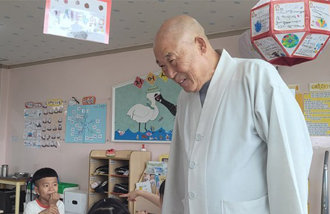[Opinion] New York Mayor Makes Things Work
[Opinion] New York Mayor Makes Things Work
Posted November. 12, 2005 08:44,
I owe nothing to any interest groups. Over the past four years, the citys financial assistance to schools has increased by $2.5 billion and the crime rate has dropped by 20%. For the past one year, 50,000 new jobs have been created and $3 billion has been invested in building inexpensive housing. Now one million more people are covered by medical insurance, said New York City Mayor Michael Bloomberg (63) in his reelection speech.
After winning the election by a decisive margin on November 8, he said to his supporters: Lets celebrate the night away. Tomorrow, we will get down to work again.
Bloomberg, a businessman-turned mayor, has great wealth, amounting to $5 billion or 5.25 trillion won. He poured $74 million or 77 billion won into his first election campaign four years ago. At the time, the New York Times endorsed the opposing candidate, calling Bloomberg a plutocrat. But this time, the newspaper stood behind him, saying, Bloomberg, the New York mayor, is on the right path to becoming one of the best mayors the nation has ever had. It complimented him, saying that he has focused his energy on making things work. But it didnt forget to warn him against the heavy spending on election advertising. The second-term mayor reportedly spent $66 million or 70 billion won on his re-election campaign.
New York is a blue state, dominated by Democrats by the ratio of five to one. However the Republican Bloomberg won re-election despite the criticism about his excessive spending. It was not because New Yorkers converted to Republicans overnight; it was because they want a mayor who makes things work. Fiorella LaGuardia, a former New York mayor from 1933 to 1945, said, There are neither Democratic nor Republican ways to clean up the city.
Bloombergs election pledges center around education, housing, security and regional development. No pledges are ambiguous or abstract. They are all about real issues that matter to New Yorkers. Based on such a pragmatic spirit, he convinced the state congress in his first term in office to delegate its educational administration authority to him, so that he could launch a sweeping reform such as the abolition of committees. In addition, he opened a 311 hotline in a bid to offer one-stop administrative services for his citizens.
Bloomberg stands by values such as independence, honesty and diligence. In other words, he believes that there is no room for partisan politics when it comes to work. When such pragmatic politicians are elected, regional and national development can be ensured. What about Korea?
Hong Kwon-hee, Editorial Writer, konihong@donga.com







